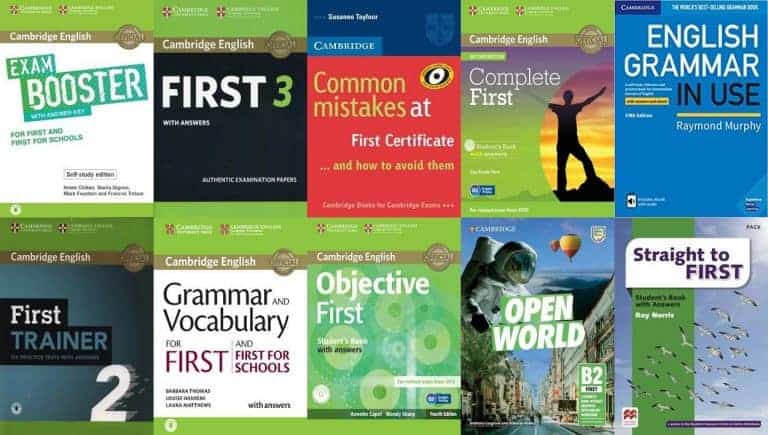Introduction
A report is usually written for a superior (e.g. a teacher) or a peer group (e.g. members of an English club). Candidates are expected to give some factual information and make suggestions or recommendations. A report should be clearly organised and may include headings.from: Cambridge English First Handbook for Teachers
Reports are part of the second section of the FCE writing exam. While you have to write an essay in the first section you can decide if you want to write a report or choose one of the other options which could be an article, a review, a letter/email or a story (Stories are an option only if you take the FCE for Schools exam, but there you don’t write reports).
- Cambridge B2 First (FCE): How to Write an Email/Letter
- Cambridge B2 First (FCE): How to Write an Essay
- Cambridge B2 First (FCE): How to Write a Review
- Cambridge B2 First (FCE): How to Write a Report
- Cambridge B2 First (FCE): How to Write an Article
- Cambridge B2 First (FCE): How to Write an Email/Letter
- Cambridge B2 First (FCE): How to Write an Essay
Don’t be scared of reports
Writing a report is better (and easier) than you might think. The requirements are not very complicated and my students don’t usually complain too much when we practise in class.
As with all the other writing tasks, reports follow a specific structure and they are normally quite similar, which means that if you know the most common characteristics, you can become very good at it in a very short time and, therefore, score really high marks.
So, in this post we are going to find out what reports look like, all you need to know about their typical structure and language and things you should be careful with in order to avoid easy mistakes. With all that being said, let’s get right into it.
What a typical report task looks like
As mentioned above, report tasks always look similar and once you know what to search for, you will see that there are patterns which you can take advantage of. A typical task might be like the one below:

With all the different writing tasks in the FCE exam you have to check two things when you read the information given:
- What do you have to include in your report?
- Who is going to read it?
Read the task carefully and underline the key information to find the answers to the two questions above. Because I’m a nice person I’ve already done it for you:

So, what do you have to include? In almost every writing task in the FCE exam you will find that there are three main points. In this example, you have to include the best (1) and the worst (2) aspects of the club as well as your suggestions for new facilities (3).
Making a suggestion/recommendation is the one piece of content that we can see in every single report because, after all, reports are usually written to make a suggestion, aren’t they? To sum up, while each task talks about a different topic there are clear similarities for you to benefit from, especially making a suggestion.
The other question was about the reader of your report. As you can see above, the manager of the club is going to be the person you are going to write to.
You might ask yourself why this bit of information is important. The short answer is: register. When we speak or write in English there are different levels of politeness and/or formality and in the FCE writing exam you have to be careful to choose an appropriate tone depending on your target reader.
Because the manager of the club has authority we should be polite and use formal to semi-formal language. This means you shouldn’t use contractions like ‘I’m’, but instead write ‘I am’ nor colloquial expressions like ‘Cheers!’, but rather ‘Thank you’. This also includes phrasal verbs so try to avoid those too. (I am going to give you some useful expressions for report writing further below in this post so just continue reading 😉 .)
How to organise your report
OK, now that we know what to include and how formal/polite we have to be we can start organising our report. Luckily, reports can always be organised in a similar way because most tasks ask you to do the same (just with a different topic).

If you remember, there are three main points we have to include in our report:
- The good aspects of the club
- The bad aspects of the club
- Your suggestions for new facilities
It probably makes sense to give each of these main topic points an extra paragraph so we’ve already got three. Let’s add a title and an introduction to this so we get to four main sections, which work in almost every single report:
- Title and introduction
- First topic point (The good aspects of the club)
- Second topic point (The bad aspects of the club)
- Your suggestions/recommendations (Your suggestions for new facilities)
In a report we also give each section a heading so your text will look like my post here clearly separated in different parts so it becomes easier for the reader to find a specific piece of information.
You’re welcome 🙂 .
Plan before you start writing
There is one mistake that I see so often that I can’t even count it anymore, but way too many students practise and practise the different writing tasks and feel confident going into the exam, but then they simply forget this super important step and mess up their test.
Of course, I’m talking about planning what you are going to write. It is so easy to do, takes only 3-4 minutes and saves you so much time and frustration. Please, always make a plan before you start writing. Just make a list with the different paragraphs like the one above and add just a few notes to each section. This way, you know the structure of your text, what you want to include and I promise you will feel more relaxed once you begin.
The different parts of a report
Using our example task from above we are now going to go through each part of an FCE report so you know exactly what is expected and what mistakes you need to avoid. Please note that these are general guidelines for report writing and you will have to adjust a little bit from task to task, but I’m going to try and help you with some general advice and useful language.
Introduction
A report is always based on facts (even though you will normally have to invent those ‘facts’) so it is not so much about making it sensational, but to be very clear and to the point. In your introduction, therefore, you should clearly state why you are writing the report and what is going to be included. Also, try not to repeat the words as you find them in the task, but instead paraphrase and use your own words. You can also say where you got the information from, but this point is optional.
Useful phrases to start your report with include:
- The purpose/aim of this report is to …
- The report is intended to show/discuss/suggest/outline …
- In this report I will …
Keeping all of this in mind, the introduction to our example task could look like this:
Introduction
The purpose of this report is to outline the best and worst parts of our club, which I gathered speaking to other members, as well as to recommend improvements to the facilities.
And that’s it. Focus on the task and state very clearly what your report intends to do…nice and easy.
Topic paragraphs
The topic paragraphs are where you give most of the information of your report. Again, it shouldn’t sound like a great story, but be factual and clear. In the example we have to describe the best and worst aspects of the leisure club. From this information we will later make our recommendations so we want to tie everything together nicely.
Of course, there are always things to be careful with:
- Only write about things related to the task.
- Support your points with reasons and examples.
- Don’t write from your personal perspective, but rather from the group’s point of view.
- Use some language to generalise your arguments:
- In general, …
- Generally speaking, …
- Most (members) seem to …
- It appears that …
- According to …
- Passive voice (be + past participle)
OK, let’s see what Teacher Phill came up with:
The best aspects of the club
Most members seem to enjoy the swimming pool with it’s daily water exercise classes and the opportunity to swim in 50-metre lanes. It also appears that offering a child care programme is appreciated by the majority of our members since many of them have families, but still would like to use the facilities of the club.
The worst aspects of the club
According to most of the members I have spoken to, the café does not meet their expectations with below-average food and slow service. Another problem is the state of the gymnasium which, in general, is avoided by many because of broken equipment and a lack of staff during peak times.
There you have it. I included formal language and expressions to generalise as well as some passive structures (is appreciated, is avoided), which helps to make the report sound more formal and also moves it away from my personal perspective. I focused only on the task and expanded a little bit on each point that I made.
So far so good, but we still have one last part to look at so let’s go!
Your suggestion/recommendation
Last but not least, we need to finish off our report with our suggestions to improve the clubs facilities. You should always base your recommendations on the things you wrote in the previous paragraphs to make sure that your report as a whole makes sense.
You can do this by using some specific language:
- Based on the findings of this report I recommend/suggest +ing
- I (would) recommend/suggest that …
- The following (improvements) are recommended: …
- The best ideas/solutions seem to be …
- It would be (highly) advisable to …
- If it is decided to follow my recommendations, …
One last time, check out my idea for a nice final paragraph:
Suggestions to improve the club’s facilities
Based on the findings of this report the best solutions seem to be to improve the quality of the menu and the service at the café as well as the maintenance schedule and number of staff at the gymnasium. If it is decided to follow my recommendations, I am sure that the experience for our members can be improved even more.
As you can see, my suggestions are well connected to the two topic paragraphs (problems with the café and the gym). I also used specific language (Based on the findings …, If it is decided to follow my recommendations, …) and some passive voice to keep the report formal until the end.
If you take my advice and put all the parts together, your report will be well connected with lots of useful language and the right tone for a report. Examiners will love it. 🙂
How your report is marked
Marking FCE writing tasks is like a science and for a lot of students it feels as if there is this big mystery and nobody really knows how it works. Actually, there are very clear rules that the examiners have to follow and the criteria are publicly available.
While it is possible to find all the information on your own I thought it would be a good idea to put everything together in an article for you. Check out how your writing tasks are marked by clicking here.
Get ready to practise
Reports are one of the easier writing tasks in the FCE exam. Don’t let formal language or specific requirements make you feel stressed. Take my advice and become a report writing champion.
Please don’t forget to leave a comment with your suggestion so teacherphill.com can become even better.
Lots of love,
Teacher Phill 🙂














u have used first tense in the report. i thought we werent allowed to use it.
plz tell me asap as i have a english test tomorrow on reports.
Hi Salahuddin,
I’m not sure what you mean by “first tense”. Could you explain that, please?